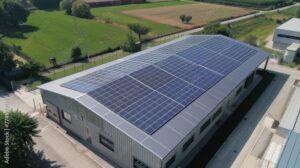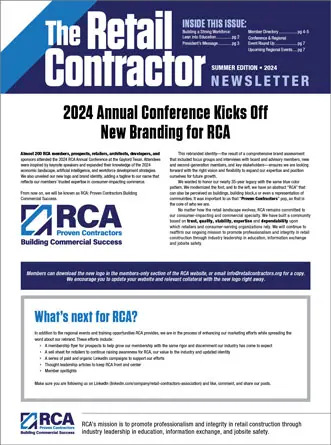Modern businesses are really at the forefront of environmental consciousness and cost efficiency. One thing that has come to rule above all is solar power, redefining how businesses operate. This article explores the benefits of harnessing solar power for businesses and offers a comprehensive guide on implementation.
Benefits of Solar Power for Businesses
Understanding the following benefits of commercial solar power is crucial in raising employee awareness about this renewable energy.
1. Cost Savings
One of the most compelling reasons for businesses to switch to solar power is the significant cost savings. Traditional energy costs are volatile and often escalate over time, impacting the bottom line. Solar power provides a hedge against these fluctuations.
By installing solar panels NZ, businesses can generate their own electricity, thereby reducing or even eliminating monthly utility bills. This self-sufficiency in energy production translates to substantial long-term savings. The initial investment in solar infrastructure is offset by the cumulative reduction in energy expenses, making the transition to solar a financially sound decision.
2. Return on Investment (ROI)
The ROI on solar power systems can be impressive. With decreasing costs of solar technology and various financial incentives such as tax credits, rebates, and accelerated depreciation, businesses can often recoup their investment within a few years. After the payback period, the electricity generated is virtually free, enhancing the overall profitability.
3. Sustainability and Corporate Social Responsibility (CSR)
Consumers and stakeholders are increasingly favoring businesses that demonstrate environmental responsibility. Utilizing solar power reduces greenhouse gas emissions or carbon footprints and dependency on fossil fuels, positioning the company as a leader in sustainability. This green image can enhance brand loyalty, attract eco-conscious customers, and improve relations with investors and regulatory bodies.
4. Energy Independence and Security
Solar power provides businesses with greater energy independence. By generating their own electricity, companies are less vulnerable to power outages and energy supply disruptions. This reliability ensures continuous operations, which is critical for businesses where downtime can lead to significant losses.
5. Competitive Advantage
Adopting solar power can differentiate a business from its competitors. It reflects innovation and forward-thinking, appealing to a growing segment of environmentally aware consumers and clients. Additionally, as more businesses go green, staying ahead of the curve can be crucial for maintaining market position.

Implementation of Solar Power
Implementing solar power strategically supports sustainable energy use and offers long-term environmental and financial benefits. Key steps include feasibility assessments, navigating technical, financial, and regulatory considerations, and ongoing monitoring and maintenance. Here’s a concise guide to transitioning your business to solar energy.
1. Feasibility Assessment
The first step in implementing solar power is conducting a feasibility assessment. This involves evaluating the energy needs of the business, the suitability of the location for solar panel installation, and the potential energy generation. Factors such as roof space, orientation, shading, and local climate play a crucial role in determining the feasibility and efficiency of a solar power system.
2. Financial Planning
Solar power implementation requires a significant initial investment, making financial planning essential. Businesses should explore various financing options, including loans, leases, power purchase agreements (PPAs), and government incentives. Consulting with financial experts and solar providers can help identify the best funding strategy tailored to the company’s financial situation.
3. Selecting a Solar Provider
Choosing the right solar provider is critical to the success of the project. Businesses should look for reputable companies with a proven track record, comprehensive warranties, and strong customer service. It’s advisable to get multiple quotes and compare not just the cost but also the quality of equipment, installation practices, and post-installation support.
4. System Design and Installation
Once a provider is selected, the next step is system design for energy efficiency. This involves determining the optimal layout of solar panels, inverter placement, and electrical connections. Advanced software tools are often used to simulate energy production and optimize the design. After finalizing the design, the installation process begins, which typically involves mounting panels, setting up the inverter, and connecting to the electrical grid.
5. Permitting and Compliance
Solar power installations require various permits and must comply with local regulations and building codes. The solar provider usually handles this aspect, but businesses should stay informed about the requirements and ensure all permits are obtained before installation begins.
6. Monitoring and Maintenance
Post-installation of commercial solar power panels, monitoring and maintenance are crucial to ensure the system operates efficiently. Modern solar power systems come with monitoring tools that provide real-time data on energy production and system performance. Regular maintenance, such as cleaning panels and inspecting equipment, helps in maintaining optimal efficiency and extending the system’s lifespan.
Conclusion
Harnessing commercial solar energy offers substantial benefits, from cost savings and a strong ROI to enhanced sustainability and energy independence. Implementing solar power requires careful planning and execution, but the long-term advantages make it a compelling investment. As the world moves towards a greener future, businesses that embrace solar power today will not only contribute to environmental conservation but also secure a competitive edge in the marketplace.







 The 2024 virtual Men’s Round Table will be held Q4, 2024, date TBD.
The 2024 virtual Men’s Round Table will be held Q4, 2024, date TBD.












